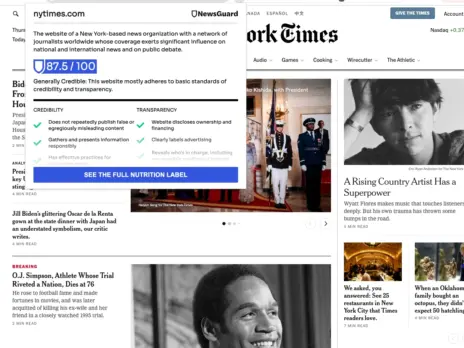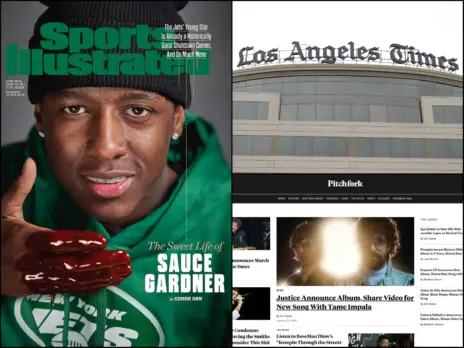
Every year, media executives from around the world get together at the Global Editors Network Summit. This year, it was Lisbon’s turn to play host.
As the trams rattled by, I listened to thought leaders debating the future of news. There were some fascinating speakers. But I was more struck by who was not there.
This was a conversation between the big publishers and the dominant intermediaries. Smaller, independent publishers were conspicuous by their absence. This is hardly surprising.
By their nature, independent publishers don’t have the time or money (or probably the inclination) to trail around the conference circuit. But it is a problem.
Because – whilst most of us are getting on with other things – the big boys are thrashing out terms of engagement that may suit them, but that do not necessarily suit journalism, or society, as a whole.
There were two emerging trends in particular at the summit that caught my attention.
Firstly, social media platforms are looking for “meaningful” news content – but it’s not entirely clear what this means.
We all know how the social media platforms have cannibalised the business model for news. For several years now, the platforms have set the agenda and publishers have been scrabbling in their wake.
This power dynamic has now shifted. Emily Bell of the Tow Center at Columbia University (and formerly of the Guardian) described the last twelve months as the “revenge of the journalists”.
A series of major stories – not least Observer journalist Carole Cadwalladr’s work on Cambridge Analytica – have mobilised public opinion and politicians against the platforms.
As a result, Facebook and company are now facing serious regulatory pressure and, in Bell’s words, their “business imperatives are changing to civic imperatives”.
In other words, the platforms are urgently trying to repair the reputational damage they have suffered. For example, Facebook is investing in the Journalism Project and it has made changes to its News Feed algorithm to ensure that users are presented with more “meaningful” content.
However, this is not straightforwardly positive for journalism. Facebook’s News Feed might present content that is meaningful to users as individuals but is not necessarily meaningful to society as a whole.
So, for example, I might see posts about my favourite celebrities but not about important developments in local government. In other words, there might be slightly less fake news on Facebook but there won’t necessarily be any more real news.
Whether they’re sharing via Facebook, Twitter or one of the alternative platforms, publishers will always need to ensure that their content is optimised for someone else’s algorithm.
Unless these algorithms are geared towards news in all shapes and sizes, then journalists – and the public – will continue to suffer.
Secondly, a gap is opening up between the technological “haves” and “have nots” in the news industry.
Big publishers are already learning how to game Facebook’s new algorithm. They use sophisticated real-time analytics to see which content is performing best on which platform. They can develop their content strategy accordingly, generating higher advertising and subscription revenue.
Big publishers can also distribute their content via multiple social media platforms, thereby reducing their reliance on Facebook and Twitter.
By contrast, smaller news organisations tend to be more heavily dependent on the dominant platforms for referral traffic. They are seriously affected by minor tweaks to the algorithms.
Big publishers also have a competitive advantage when it comes to new technology.
They have the resources to sift large databases like the Panama Papers in search of news stories. They can use Artificial Intelligence to complement the work of journalists. (The latest buzz is “the cybernetic newsroom”, where humans and machines will work together to create news stories.)
And, if they want, big publishers have the tools to check the authenticity of social media posts before writing up stories on them.
In these ways, the big beasts of the news industry can use their financial muscle and scale to reassert themselves in the digital news economy. It looks like they are learning how to live with the platforms, but this may be leaving independent publishers out in the cold.
The British media is already heavily concentrated. Recent developments have only exacerbated this.
The Cairncross Review is supposed to find ways to sustain high-quality journalism. Dame Frances needs to understand and address the technological gap between the biggest publishers and the rest of the industry if she is going to have any chance of meeting her objectives.
Jonathan Heawood is chief executive of press regulator Impress.
Picture: Pixabay
Email pged@pressgazette.co.uk to point out mistakes, provide story tips or send in a letter for publication on our "Letters Page" blog







